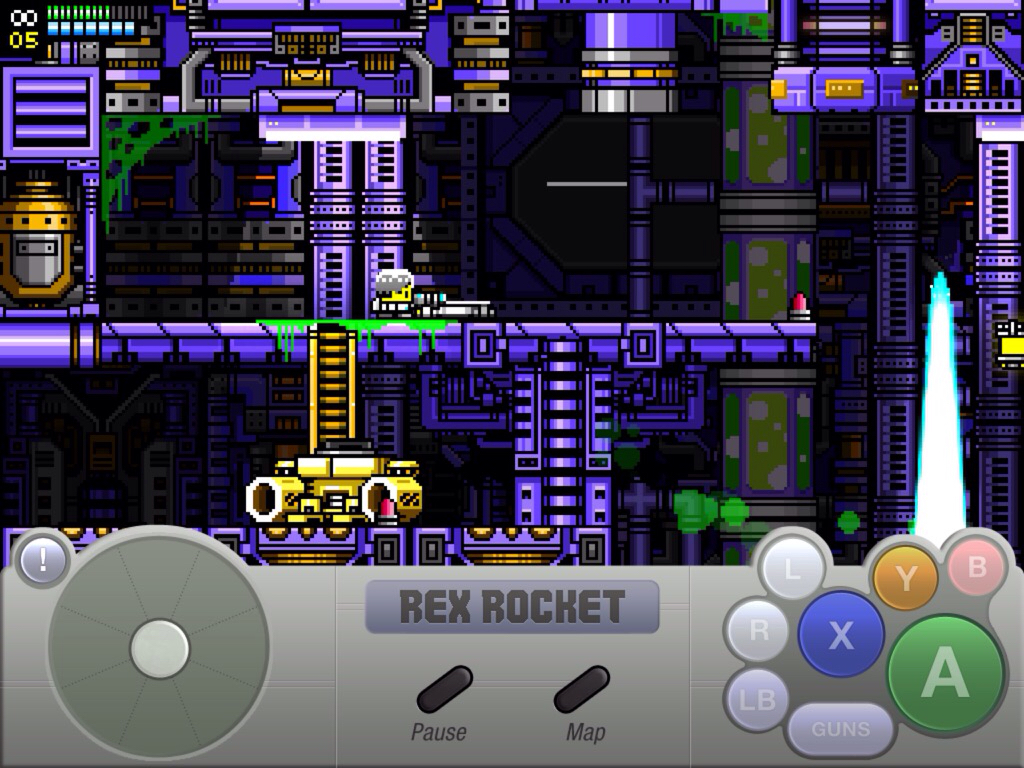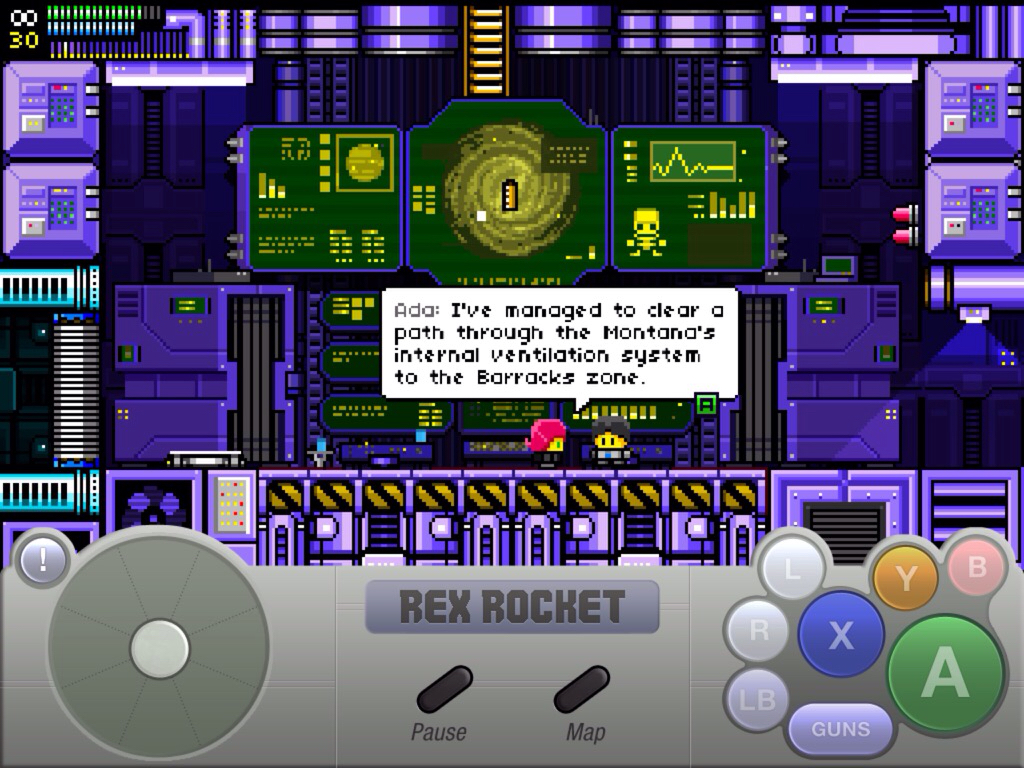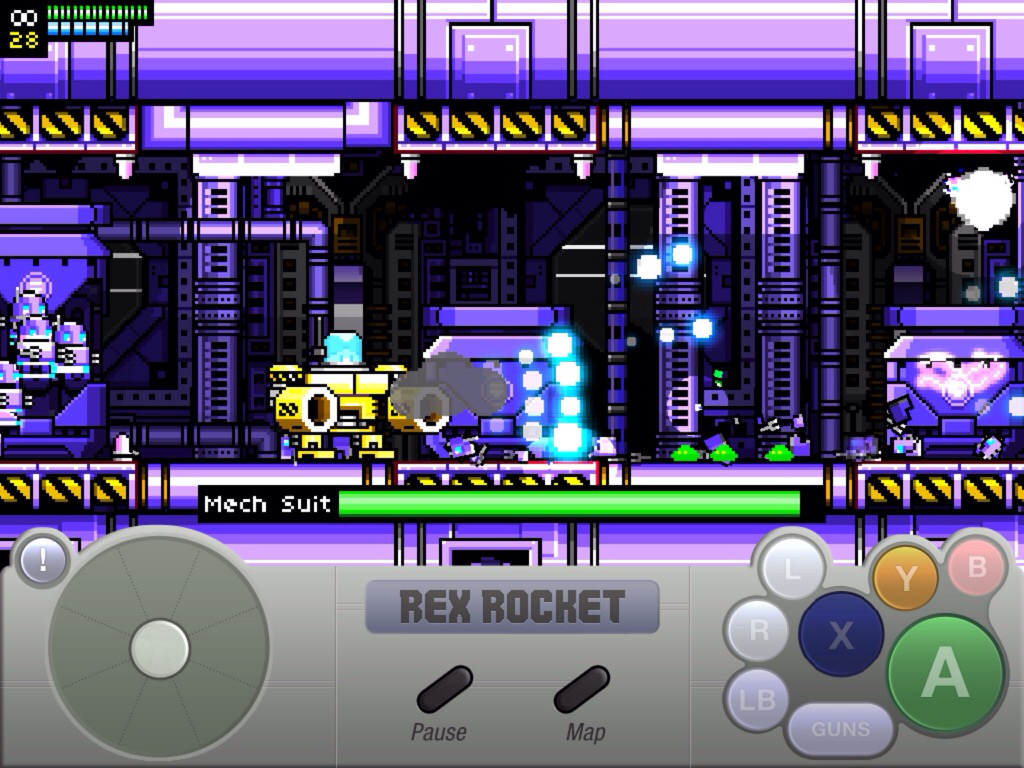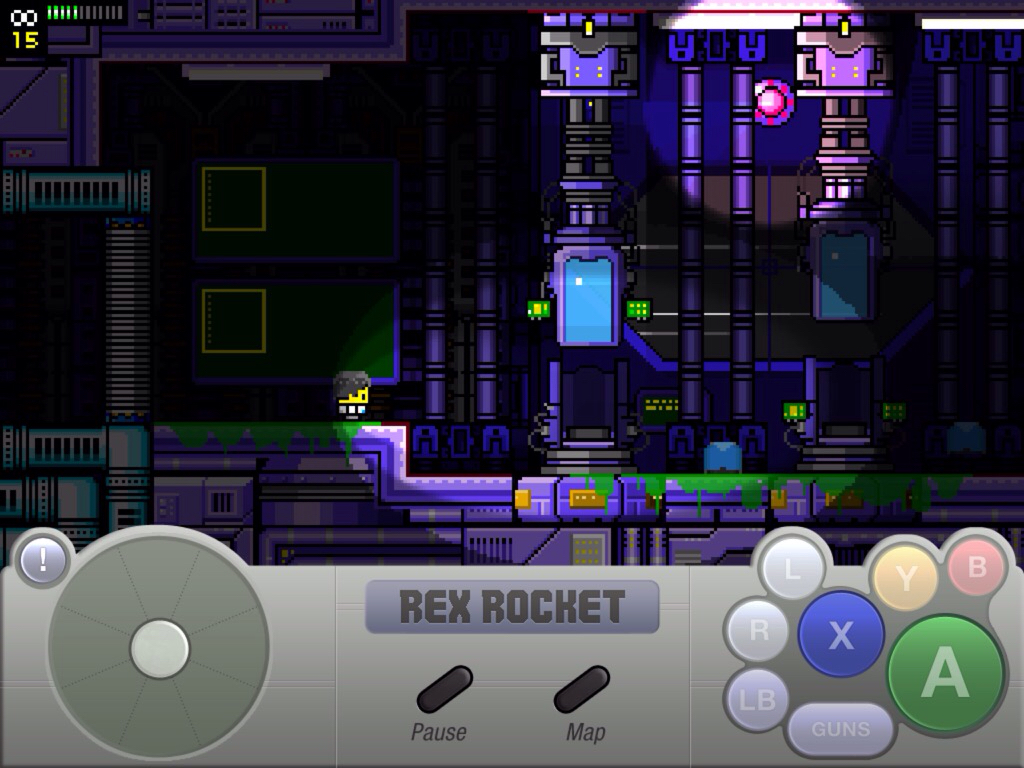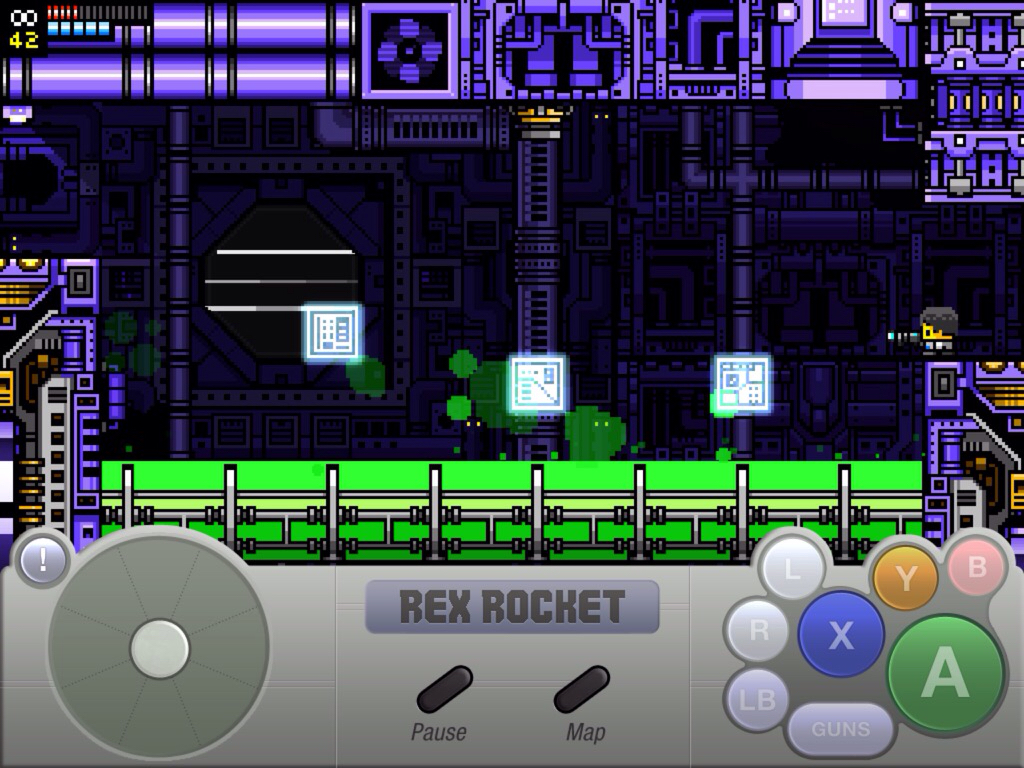 If there’s one thing I should have learned after being into video games for as long as I have, it’s that nature abhors a vacuum. Even after watching countless genres swing out of and back into fashion over time, I still sometimes find myself lamenting the lack of games of a certain type during the quiet periods. After seeing Castlevania leave the hands of Koji Igarashi and Nintendo seemingly giving up on Metroid for the moment after the disappointing reception to Other M, I grumbled about the seemingly dim future of the Metroidvania sub-genre. Looking around today, I clearly needn’t have worried. After all, there are more people making games than ever, and more games being released than ever, so any holes left by the big players are likely to get filled by smaller developers looking for a niche. Especially so if said hole is a genre near and dear to the hearts of many gamers-turned-developers, the way Metroidvanias seem to be.
If there’s one thing I should have learned after being into video games for as long as I have, it’s that nature abhors a vacuum. Even after watching countless genres swing out of and back into fashion over time, I still sometimes find myself lamenting the lack of games of a certain type during the quiet periods. After seeing Castlevania leave the hands of Koji Igarashi and Nintendo seemingly giving up on Metroid for the moment after the disappointing reception to Other M, I grumbled about the seemingly dim future of the Metroidvania sub-genre. Looking around today, I clearly needn’t have worried. After all, there are more people making games than ever, and more games being released than ever, so any holes left by the big players are likely to get filled by smaller developers looking for a niche. Especially so if said hole is a genre near and dear to the hearts of many gamers-turned-developers, the way Metroidvanias seem to be.
My doubt came largely from how difficult it is to make a good, satisfying game in this genre. It wasn’t an unwarranted doubt, either. While I’ve been lucky enough to play plenty of games that technically qualify for the genre label, the overwhelming majority of them have come up short in some way or another. Sometimes they’re a little too brief and simple to let their concepts flourish. Other games nail the length but don’t hit the pacing well. Some, while checking the boxes for the genre, just don’t feel much like that intangible experience I’m looking for at all. No game is easy to make, but the more freedom you give a player, the more unexpected contingencies can arise. In a game that functions primarily as a sandbox, that’s usually a positive outcome so long as nothing breaks completely. But Metroidvanias aren’t sandboxes, generally speaking. They’re less like a crate of LEGO bricks and more like a model kit, intended to give you the feeling of an open world where you can go anywhere as opposed to the real deal. Due to that illusion, players will try to break the design at every opportunity, and the designer has a hard job ahead of them in deciding exactly how often and how extensively they want to allow that. On top of that, they actually have to make sure those plans work as expected.
I apologize for the lengthy digression, but the point is that making a good, well-rounded game in this genre is extremely difficult, especially for an independent developer without the testing resources of a Nintendo or a Konami. Even trying to make an open knock-off of one of the genre tops is a massive undertaking. When I try to think of indie Metroidvanias that can have lunch at the same table as the games that formed the genre name, the list is painfully short. Guacamelee, Shadow Complex perhaps, maybe Aquaria ($4.99). You would get people who would stand for and against those, I suspect. The one I think almost everyone would agree on, however, would be Cave Story, one of the more famous Japanese indie games. It’s huge, challenging, and packs in just the right amount of linearity. Its backtracking is generally handled in a smart way, and most of all, it feels like its own thing. It’s also the most similar example I can think of to Castle Pixel’s Rex Rocket ($1.99), which released on Steam and the WiiU in the summer of last year and just recently made its way to iPad.
It’s possible the resemblance is intentional. Cave Story is certainly famous enough by this point. But I could also see it being a coincidence that resulted from the attempt of both games to fuse the non-linearity of a Metroidvania with the action-platforming sensibilities of classic Japanese side-scrollers such as Mega Man or Contra. Whatever the case, my comparison is meant to be a flattering one. Rex Rocket is perhaps not as vast or polished as Cave Story ended up, but it’s no paper tiger either. The shooting action is hot, the platforming is tricky, the bosses are a treat, and the design of the ship where the game takes place is strong. Your character, Rex Rocket, has good physics about him/her (you can choose your preferred gender) and lots of fun toys to collect. Once you get the controls sorted, it’s a lot of fun just to move around the world.
That last qualifier is the tough part, though. Rex Rocket is an iPad-only game for the moment, and the reason for that is perhaps obvious if you look at any of the screenshots in this review. It has a virtual 8-way directional pad, and at least a PlayStation controller’s worth of virtual buttons. Some of the controls work well immediately. It’s easy enough to move Rex around and the jump button is large and easily accessible. Others you’ll have to get used to, like learning the button arrangement for your weapons so that you can switch the one you’re firing without having to move your eyes away from what you’re shooting at. A couple of things never work very well, at least in my opinion, like the extremely important jump extender that is shooting downwards. If you’re patient, you’ll probably pick things up enough to get through this fairly tough game, but I suspect a lot of people will run out of patience pretty early on.
Rex Rocket is a difficult game. It’s not insanely difficult by design, mind you, falling well within the lines of something like Cave Story or the more challenging installments in the Mega Man series, but it has to cope with the obvious issues that come from moving a game designed around buttons to touch controls. The developer of the iPad version changed a few things to make it easier, most notably exchanging the original’s limited lives for unlimited retries, but you’re going to be expected to pull off some Mega Man X-like moves using that virtual controller, and that’s not even getting into the optional branches of the ship. You’ll frequently have multiple paths open to you. The way forward is usually the easiest exit to take, while other choices will lead to challenging mini-areas that offer up some very nice rewards. It’s up to you if you want to go for them, but the last part of the game can be pretty rough if you don’t.
While the gameplay in general is quite good, the boss fights are particular standouts. Like the bosses in the games Rex Rocket pays homage to, they’re intense, pattern-based battles against enemies that have a major advantage over you on paper. Their life bar is always visible, telling you just how close you are to making it this time while also providing clues about what does or doesn’t damage them. This is perhaps the part of the game that feels most like something pulled out of Mega Man X, with the fights taking place in confined arenas where the enemy seems to have the upper hand. You won’t often win these on your first try, but the learning process that leads to each boss’s death is extremely satisfying. As boss fights should, each of these dust-ups acts one of the game’s highlights.
Naturally, Rex Rocket has a pile of collectibles for you to seek out. While you can’t miss certain things like the double-jump granting jetpack, other things like advanced weapons and health/ammo max increases might require a bit of searching or displaying mastery of the game’s mechanics. In addition to the practical upgrades, there are also 90 logs to find that provide some flavor text on the game’s universe. Collecting everything will keep you busy for quite some time, particularly since it’s not just a matter of finding things, but also being good enough at wrangling the controls in the game to actually reach said items. This is where the game gets incredibly frustrating at times. You have unlimited lives, so when you die you’ll respawn at your last checkpoint. The checkpoints are laid out reasonably for progressing in the main path, so you’ll never have to redo a bunch of challenges before heading in for another go at the boss, for example. But they’re not always set up in favor of these difficult side tasks. Making it through a very difficult section or two only to die near the prize is a staple of classic action games, so it’s fine from a design standpoint, but in Rex Rocket the controls are as likely to be the cause of your death as an errant spike is. That’s just plain aggravating no matter what era you’re playing in.
It says something for the quality of the underlying game that no matter how many times I died due to a control malfunction, I still wanted to keep playing. As usual with games like this, the longer you play, the more of a feel you get for the virtual controls. The game’s job, then, is to keep you playing long enough to get on with the controls, and it does that quite well. While it starts a bit slow to establish the setting and get you used to the basic controls, it kicks into high gear pretty quickly after that and never lets up. The intensity of the action is almost overwhelming early on, but as you’re striding through a corridor while wearing the game’s version of Mega Man X‘s Ride Armor, firing hot laser death at wall-to-wall enemies, it’s hard not to let out a cackle of glee at the mayhem of it all. No matter how angry I get at times, I want to keep playing, not just to see what’s coming next, but also because the very act of playing it is fun.
Still pictures don’t do this chaos justice. Although Rex Rocket uses a somewhat simple appearance for many of its sprites, the quality of the animation, effects, and the sheer number of objects it throws around at times makes for a visually pleasing experience. The soundtrack, done by talented chiptune artist Saskrotch, is also a treat. The game also has a huge list of fun achievements through Game Center. The developer has said in our forums that they’re working on MFi controller support, and if they can find a way to make the game work on smaller displays, they might go universal in the future. I’d love to see both of those things happen. For now, we’ll just have to make do with what’s here.
Rex Rocket is an excellent game that manages to scratch both my itch for a great new Metroidvania and a Mega Man-style action platformer. The controls, while probably as good as they could be given the design and the lack of buttons on touch devices, will sometimes let you down, and the game is just hard enough to make that frustrating. Even so, the game is well-worth sticking with. While iOS has a lot of really fun smaller-scale games in this genre, Rex Rocket is a rare example of a huge, fully-formed action-adventure game that doesn’t make any compromises in its design. It’s long, packed with secrets, and has plenty of optional challenges to keep you busy for quite a while. As long as you have the patience to get you through some trying moments, you’ll want to join this rocking Rocket adventure.
